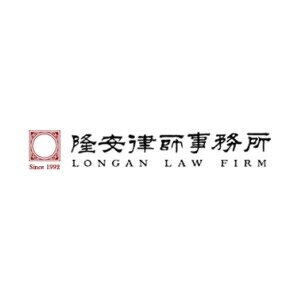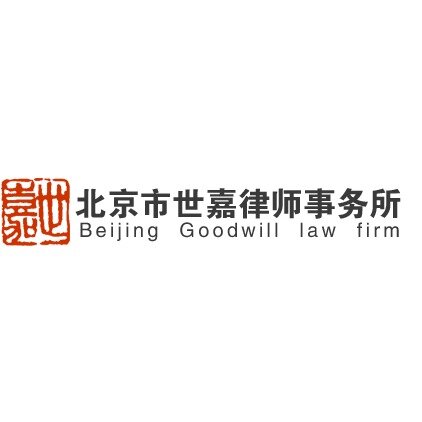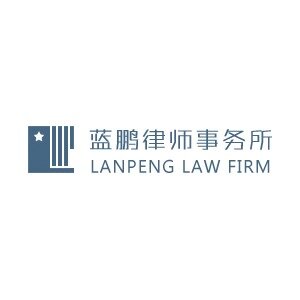Best Renewable & Alternative Energy Lawyers in Beijing
Share your needs with us, get contacted by law firms.
Free. Takes 2 min.
List of the best lawyers in Beijing, China
About Renewable & Alternative Energy Law in Beijing, China
Renewable and alternative energy law in Beijing, China focuses on the legal frameworks and policies that govern the generation, distribution, investment, and consumption of renewable energy sources such as solar, wind, hydro, biomass, and geothermal energy. Beijing, as the capital city, has positioned itself at the forefront of China’s commitment to carbon reduction and the nationwide transition toward clean energy. The city actively implements both national and local policies aimed at fostering green growth, minimizing environmental impact, and attracting investment in renewable technologies. This legal area encompasses a broad mix of environmental, administrative, regulatory, and commercial legal principles.
Why You May Need a Lawyer
Legal matters in the renewable and alternative energy sector can be complex, especially when navigating a landscape shaped by frequent policy changes, technical standards, and regulatory requirements. Common situations where individuals or companies may require legal assistance include:
- Launching new renewable energy projects, such as solar farms or wind installations
- Securing the necessary permits, licenses, or environmental approvals
- Drafting or reviewing contracts with suppliers, grid companies, or government entities
- Understanding compliance obligations under local and national regulations
- Addressing disputes related to project financing, land use, or intellectual property rights
- Navigating incentives, subsidies, or tax breaks designed to promote clean energy
- Dealing with administrative penalties or legal actions resulting from regulatory non-compliance
Engaging a legal professional can help ensure your rights and interests are protected while facilitating smoother project execution.
Local Laws Overview
The renewable and alternative energy sector in Beijing is regulated jointly by national and municipal laws. Key local aspects include:
- Planning and Approval: Renewable energy projects require approvals from relevant municipal departments, especially for land use and environmental impact assessments. The Beijing authorities have specific guidelines that align with China’s national renewable energy law and five-year plans.
- Incentives and Subsidies: Beijing offers tax incentives, subsidies, and financial support for certain types of projects, such as distributed solar rooftop initiatives and wind energy investments. These may be adjusted regularly in response to government priorities.
- Grid Connection: Operators must comply with technical standards and connect renewable installations to the state grid, often managed by the State Grid Beijing Electric Power Company. Regulations govern payment structures, grid access, and feed-in tariffs.
- Environmental Compliance: Environmental protection remains a high priority. Projects need to comply with the Environmental Protection Law and complete Environmental Impact Assessments with Beijing’s local authorities.
- Carbon Reduction and Trading: Since the release of national carbon trading markets, Beijing has proactively participated, with legal measures guiding company obligations regarding emissions and carbon credits.
- Import and Intellectual Property: The use of foreign technology or international investment in renewable energy is subject to specific approval procedures and intellectual property protections.
Always check the most current regulations, as the renewable energy sector is subject to frequent updates in policy and law.
Frequently Asked Questions
What are the main sources of renewable energy in Beijing?
Beijing’s primary renewable energy sources include solar power, wind power, and biomass energy. There has also been recent growth in geothermal and small hydroelectric projects.
Are there government incentives for installing renewable energy systems in Beijing?
Yes, the Beijing municipal government offers various incentives such as subsidies, tax relief, and support programs targeting distributed solar PV installations, wind projects, and energy storage systems. The specifics can vary yearly.
What approvals are required to start a renewable energy project in Beijing?
Projects typically require approvals related to land use, environmental impact assessments, safety certifications, connection to the local grid, and sometimes public consultation. Processes can differ depending on the project type and scale.
How does Beijing’s renewable energy policy align with national laws?
Beijing implements national renewable energy laws and policies while adapting them to local economic and environmental conditions. The city frequently pilots regulatory reforms which may later be adopted elsewhere in China.
Can foreign investors participate in renewable energy projects in Beijing?
Yes, foreign investors can participate, though there may be restrictions or additional requirements based on the type of project, location, and use of foreign technology. Approval from relevant authorities is essential.
How are disputes in renewable energy projects resolved?
Disputes may be addressed through negotiation, mediation, arbitration, or litigation. Contractual agreements usually specify preferred dispute resolution mechanisms. Specialized legal advice is recommended.
What are the grid connection requirements for renewable energy?
Renewable energy projects must meet grid technical standards and apply for permission to connect to the state grid. Project owners may need to negotiate power purchase agreements with grid operators.
Are there regulations on environmental protection for renewable projects?
Yes, all renewable energy projects must comply with environmental laws, including mandatory environmental impact assessments and ongoing monitoring to mitigate negative effects.
What penalties apply for non-compliance with renewable energy laws in Beijing?
Penalties can range from fines to suspension of operations or loss of permits, depending on the severity and nature of the violation. Repeat offenders may face more severe measures.
Where can I find the latest policies on renewable energy in Beijing?
These are typically published by the Beijing Municipal Commission of Development and Reform, Beijing Municipal Commission of Urban Management, and other official government departments. Consulting a legal professional can also help interpret and apply the latest regulations.
Additional Resources
Here are several resources and government bodies relevant to renewable and alternative energy in Beijing:
- Beijing Municipal Commission of Development and Reform
- Beijing Municipal Commission of Urban Management
- Ministry of Ecology and Environment of the People’s Republic of China
- State Administration for Market Regulation
- State Grid Beijing Electric Power Company
- China Renewable Energy Society (CRES)
- China National Energy Administration
- Local law firms specializing in environmental and energy law
These organizations provide guidance, policy updates, statistical information, and may offer consultation services or direct channels for inquiries.
Next Steps
If you need legal assistance in the renewable and alternative energy sector in Beijing, start by clearly defining your project’s scope or your specific legal concern. Gather all relevant documentation, including business plans, technical reports, prior correspondence with authorities, and contracts.
It is recommended to consult a legal professional or law firm that specializes in energy and environmental law. Many firms offer a preliminary consultation, which can help you understand potential challenges and structure a legal strategy. Contact local authorities or relevant industry associations for referrals if needed. Always ensure your legal counsel has experience with Beijing’s unique administrative landscape and up-to-date knowledge of current regulations.
Acting proactively by involving a lawyer early can prevent costly mistakes and ensure your project complies with all legal requirements as the renewable energy sector continues to evolve.
Lawzana helps you find the best lawyers and law firms in Beijing through a curated and pre-screened list of qualified legal professionals. Our platform offers rankings and detailed profiles of attorneys and law firms, allowing you to compare based on practice areas, including Renewable & Alternative Energy, experience, and client feedback.
Each profile includes a description of the firm's areas of practice, client reviews, team members and partners, year of establishment, spoken languages, office locations, contact information, social media presence, and any published articles or resources. Most firms on our platform speak English and are experienced in both local and international legal matters.
Get a quote from top-rated law firms in Beijing, China — quickly, securely, and without unnecessary hassle.
Disclaimer:
The information provided on this page is for general informational purposes only and does not constitute legal advice. While we strive to ensure the accuracy and relevance of the content, legal information may change over time, and interpretations of the law can vary. You should always consult with a qualified legal professional for advice specific to your situation.
We disclaim all liability for actions taken or not taken based on the content of this page. If you believe any information is incorrect or outdated, please contact us, and we will review and update it where appropriate.

















